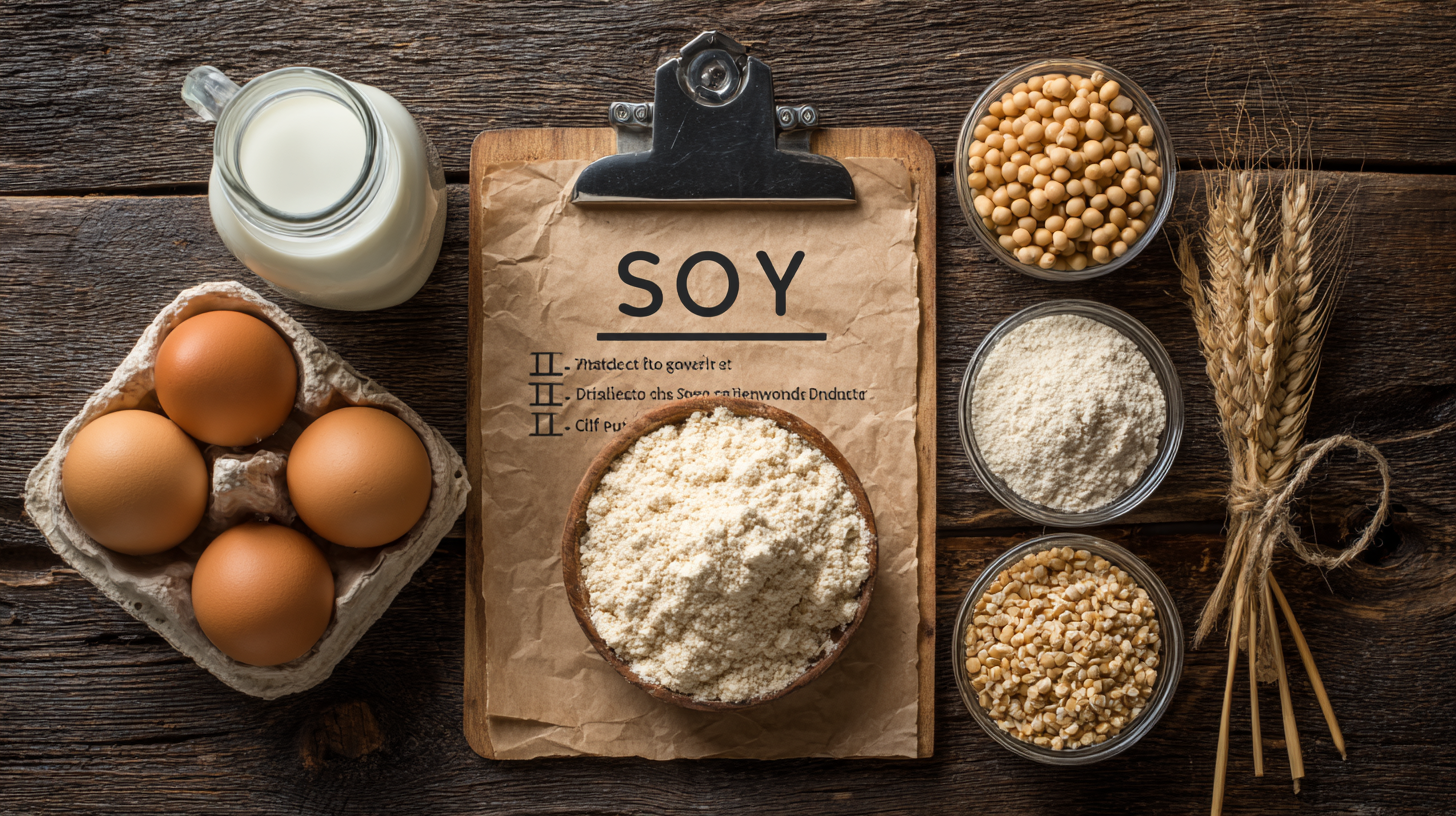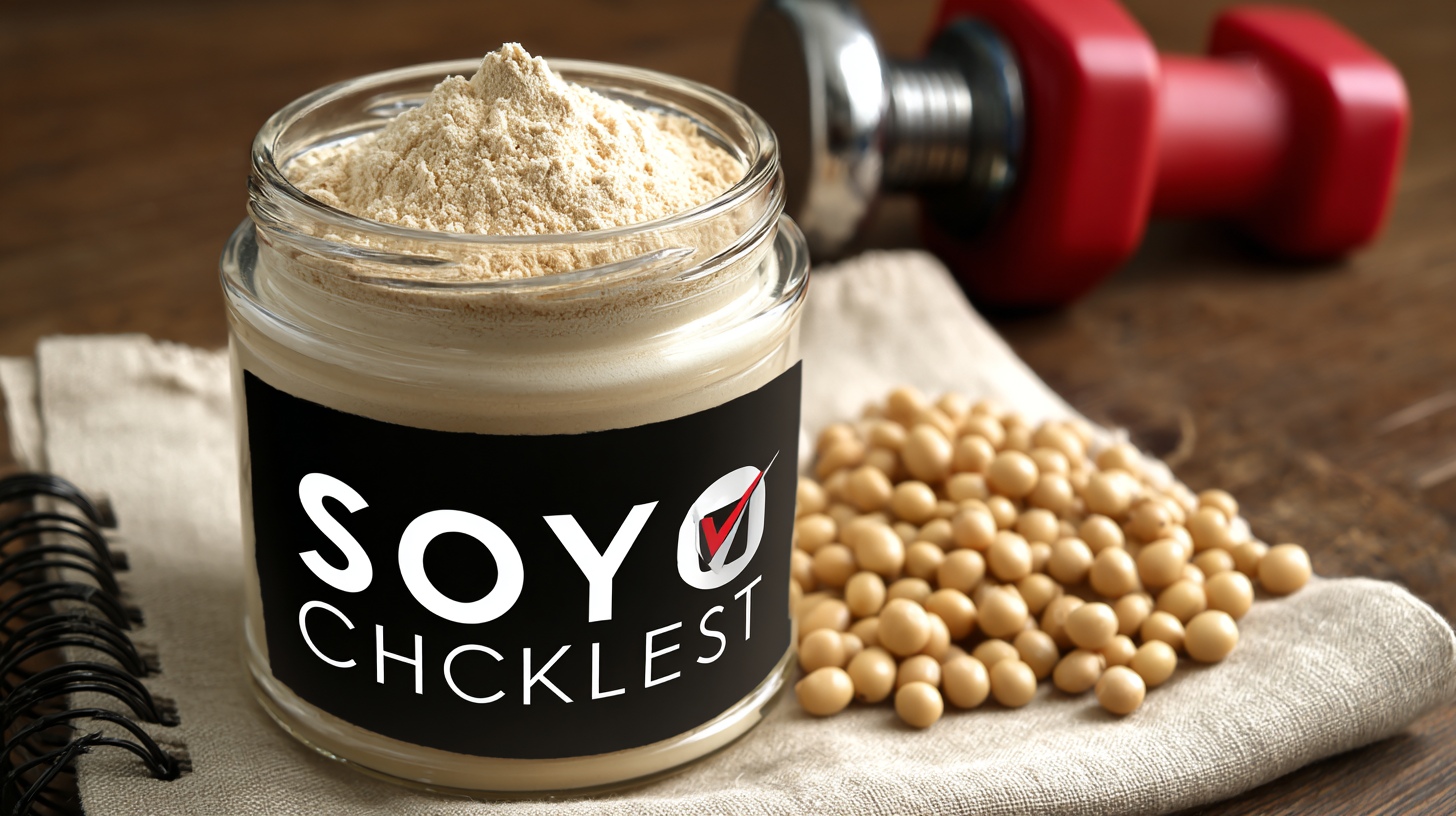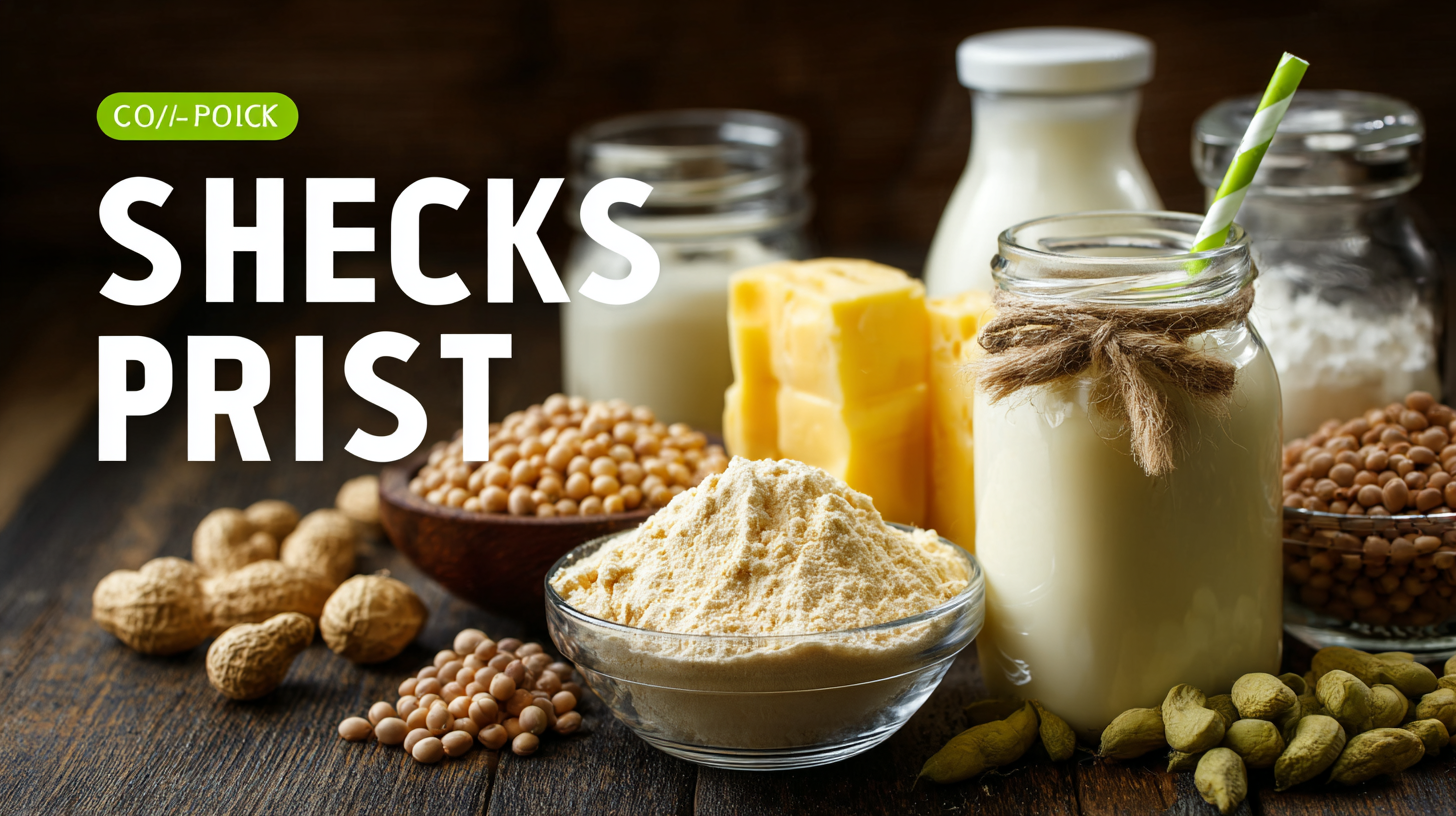In today's health-conscious market, the demand for high-quality Soy Protein Powder has surged dramatically, driven by an increasing awareness of plant-based diets and their numerous benefits. According to a recent report by Research and Markets, the global soy protein market is projected to reach $7.4 billion by 2026, growing at a CAGR of 5.2% from 2021. As businesses strive to align with this trend, understanding the nuances of sourcing the right soy protein is critical. Key aspects such as after-sales service advantages and maintenance costs play a pivotal role in determining the overall value of suppliers in this sector. Companies looking to capitalize on this booming market must ensure that the soy protein powder they select not only meets quality standards but also provides reliable support, optimizing both operational efficiency and profitability.

When venturing into the soy protein trade, understanding the significance of import-export certifications is crucial. As global markets become increasingly interconnected, maintaining compliance with varying certifications, especially from key regions like the European Union, is essential. The EU has introduced rigorous regulations aimed at ensuring that all imported agricultural products, including soy proteins, are sustainably sourced. A comprehensive certification system not only aligns with these regulations but also enhances product credibility in international markets.

Countries like Argentina and Serbia are taking notable steps to achieve deforestation-free supply chains, reflecting a growing trend towards sustainability in soy production. The establishment of these certification systems enables importers to assure buyers that their soy protein is ethically sourced, mitigating concerns surrounding environmental impact. Businesses that prioritize these certifications not only fulfill regulatory requirements but also resonate with a consumer base increasingly concerned about sustainability and ethical sourcing practices. In this evolving landscape, having a proactive approach toward sourcing certified soy protein can significantly enhance a company's market position.
When sourcing soy protein powder for your business, understanding its nutritional profile is essential. Soy protein is a complete protein, containing all nine essential amino acids, making it an excellent alternative to animal-based proteins. It is also low in saturated fat and cholesterol-free, appealing to health-conscious consumers. Additionally, soy protein is rich in vitamins and minerals, such as calcium, potassium, and iron, contributing to a well-rounded dietary option.
When evaluating different soy protein powders, consider the protein concentration, often ranging from 70% to 90%. Higher concentrations are beneficial for formulations intending to deliver robust protein boosts without excess fillers. Furthermore, scrutinize the processing method; opt for products that utilize minimal processing to retain the natural nutrients and avoid artificial additives.
Another tip is to check for allergen information and certification, especially if your market targets consumers with dietary restrictions. Non-GMO and organic certifications can also enhance your product's appeal, reflecting a commitment to quality and sustainability. Pay attention to flavor profiles, too, as some soy protein powders may have a bean-like taste that could affect the final product's palatability.
This bar chart illustrates the nutritional profiles of various soy protein powders, comparing their protein, carbohydrate, and fat content per 100 grams. This can assist businesses in assessing the best soy protein powder for their needs based on nutritional content.
When sourcing soy protein powder, evaluating supplier quality is crucial to ensuring that you meet your business needs while adhering to industry standards. One of the key factors to consider is the supplier's adherence to safety and quality certifications. According to a report by the Global Protein Report 2022, approximately 73% of consumers prioritize products with verified quality assurance programs, such as ISO certifications. This highlights the importance of partnering with suppliers who consistently adhere to these standards.
Additionally, the sourcing practices of suppliers are vital in determining the overall quality of soy protein. Research from the North American Soybean Association indicates that sustainable farming practices not only improve the protein content but also positively impact the environmental footprint. Data shows that soy protein sourced from sustainably managed farms can have a higher amino acid profile, making it a more nutritious choice for end consumers. Therefore, businesses should scrutinize their suppliers for transparency concerning sourcing methods and sustainability practices to align with the growing demand for ethically produced ingredients.
When sourcing soy protein powder for your business, understanding the regulatory landscape is vital, especially if you are importing these products. Essential certifications such as the
FDA's Generally Recognized as Safe (GRAS) status and the
Necessity of Compliance with the Food Safety Modernization Act (FSMA) can greatly impact your importation process. According to a 2021 report by the Global Soy Protein Market, compliance with these regulations ensures not only quality but also enhances consumer trust, which is increasingly critical in a market projected to reach $8.8 billion by 2026.
Moreover, third-party certifications like Non-GMO Project Verified and USDA Organic can distinguish your soy protein offerings in a crowded marketplace. A survey by the International Food Information Council noted that 67% of consumers prefer products with such certifications, highlighting the importance of transparency in sourcing. Ensuring that your soy protein powder meets these compliance measures not only adheres to legal requirements but also positions your brand favorably among health-conscious consumers. As the demand for plant-based protein alternatives continues to climb, prioritizing regulatory compliance and respected certifications will be crucial for your business's success.
In 2023, the global demand for soy protein powder is projected to rise significantly, influenced by evolving dietary preferences and an increasing focus on health and fitness. As consumers turn toward plant-based diets, the market for plant protein supplements is forecasted to grow from $66 billion in 2025 to an impressive $101.7 billion by 2032, recording a compound annual growth rate (CAGR) of 6.37%. Soy protein, as a key player in this segment, is expected to benefit from these trends.
Additionally, the soy-derived products market is witnessing substantial growth, with a robust demand anticipated across multiple applications, including food and animal feed. The overall protein ingredient market within food applications is projected to expand at a CAGR of approximately 7.5% from 2023 to 2032. This growth is driven by heightened health awareness and the increasing consumer inclination toward protein-rich diets. With these market dynamics at play, businesses looking to source the best soy protein powder must keep abreast of ongoing trends and consumer demands to ensure they meet the needs of their target audience effectively.

